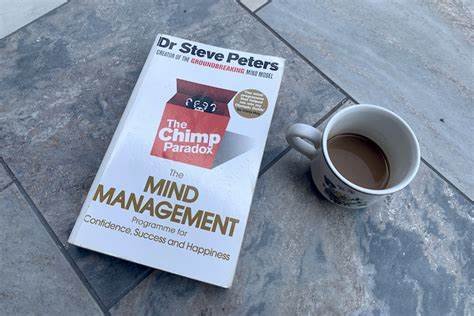The Chimp Paradox: Your Inner Chimp and Your Culture
The Chimp Paradox - The Mind Management Programme
I discovered Dr. Steve Peters and his insightful book The Chimp Paradox around ten years ago, and since that time, he has been a guest on numerous popular podcasts, sharing his knowledge and expertise. He initially gained widespread recognition for his influential work with British Cycling and with the men’s England Football team, where his insights into psychology made a significant impact. Over the years, I have come to realise how our brains function in different and complex ways. Now, I can easily identify whether my rational (human) brain or my emotional (chimp) brain is taking the lead in various situations. This understanding significantly aids in improving organisational culture and effective leadership, as it enables us to develop both rational and emotional strategies for ourselves and our teams. Ultimately, organisational culture is shaped by our individual and collective thoughts and behaviours. Recognising and maintaining the balance between the 'chimp' and the 'human' aspects of our nature is essential for creating a healthier and more productive culture and environment.
The Chimp Paradox by Dr. Steve Peters explores the concept of managing the emotional and rational parts of our brain, which he refers to as the “Chimp” and the “Human” respectively. This model can be highly relevant to organisational culture in several ways:
Emotional Regulation: In a workplace, recognising, understanding and managing emotions is crucial. The Chimp Paradox helps individuals recognise when their “Chimp” (emotional brain) is taking over and how to manage it. This can lead to better conflict resolution and a more harmonious work environment.
Improved Communication: By understanding the Chimp model, employees can improve their communication skills. They learn to recognise emotional triggers in themselves and others, leading to more effective and empathetic interactions.
Enhanced Decision-Making: The book emphasises the importance of the rational “Human” brain in making decisions. In an organisational context, this can help in making more logical and less emotionally-driven decisions, which is beneficial for strategic planning and problem-solving.
Building Resilience: The Chimp Paradox provides tools for managing stress and building resilience. This is particularly valuable in high-pressure work environments where maintaining mental well-being is essential for productivity and job satisfaction.
Leadership Development: Leaders who understand and apply the principles of the Chimp Paradox can create a more supportive and effective organisational culture. They can better manage their own emotions and set a positive example for their teams.
By integrating these principles, organisations can foster a culture that promotes emotional intelligence, effective communication, and rational decision-making, all of which are key components of a healthy and productive workplace. To explain more check out this video below from Dr Steve Peters on The Diary of a CEO podcast:

